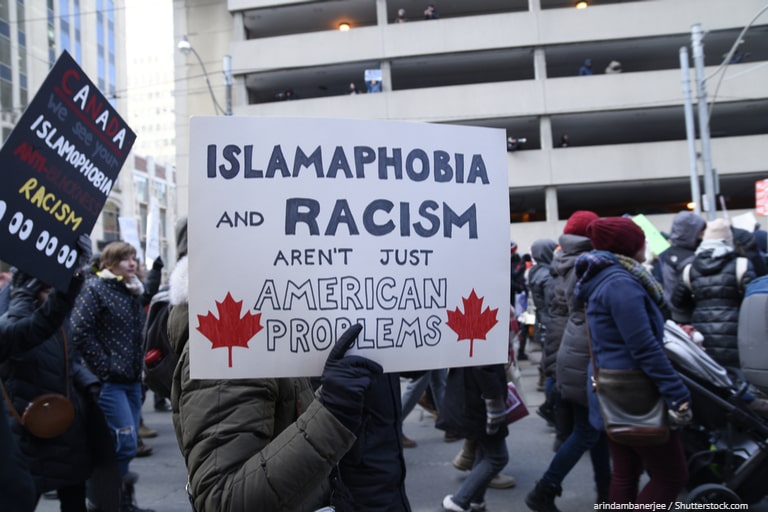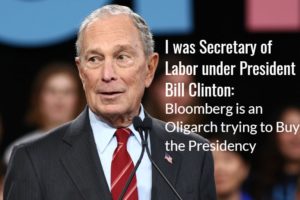By Aly Kamadia, Editor-In-Chief, iDose
Do Canadians hate Muslims?
That depressing question poked away in many minds after the recent (June 6th) act of terror inflicted upon a Pakistani-Canadian Muslim family in London, Ontario (Canada).
While enjoying an evening walk, an entire Muslim family was run over intentionally by a man behind the wheel of a speeding truck. The police stated that the crime was “premeditated” and that the innocent family was “targeted because of their Muslim faith”.
Four victims were horrifically murdered in the incident, with the youngest victim remaining in stable condition at a hospital (a nine-year old named Fayaz).
While the attack was widely condemned, where does one turn to when asking the broader question of whether non-Muslim Canadians hate Muslim Canadians, and if so, what sort of solutions does Canada’s liberal democracy offer?
Politicians, often as a general rule of thumb, are an utterly useless source of knowledge or innovative solutions.
While a number of Canadian politicians have condemned the horrific London crime, very few would dare to challenge the narrative that Canada is a multicultural heaven. As every marketer and salesperson knows (note that too many politicians are merely fraudulent salespeople), narratives serve as a potent psychological tool. The popularity of the ‘Canada is a multicultural heaven’ story incentivizes self-serving politicians to keep parroting the story – regardless of whether or to what extent it’s fiction.

Moreover, amidst the London tragedy, the audacity of some politicians hasn’t ceased to impress the most ardent cynics.
For instance, is it not absurd that the same Canadian politician who condemns the London act of terror, only a few weeks prior, cowers in silence while Canada’s staunch ally Israel blows up media buildings – an inexcusable crime against the democratic values of freedom of the press and freedom of speech?
Do we not see the true character of many politicians when they decry the murder of Muslims on Canadian soil, while happily cheering on Israel’s “right” to use disproportionate military force that produces, among other horrors, the blood of innocent Palestinian children? (Let’s not get started on the topic of Canadian politicians who are great friends with open bigots.)
Arguing that too many politicians are opportunists with no allegiance to the truth is a historical truism that’s necessary to repeat, though not worth investing excessive time on.
We therefore turn our gaze elsewhere: Can we count on today’s business leaders to answer whether Canadians hate Muslims and offer imaginative solutions if they do?
Given the dominant role that multinational corporations play in our era, the term ‘Corporate leadership’ instinctually comes to mind. Unfortunately, in the brains of the sane, the phrase is laughed at by virtue of being an oxymoron. (The leading MIT economist, Daron Acemoglu, has a piece in this month’s iDose issue arguing the CEOs are a fundamental impediment to social progress.)
Executive leaderships of large multinational firms are first and foremost dedicated to the pursuit of filling their infinite-sized pockets. In the neoliberal era of the past few decades, their level of greed has escalated more exponentially than their overinflated salaries. If a social issue doesn’t impact their personal bank accounts, it’s not worthy of their precious attention.

Often the kindest gesture one will witness is seeing an executive throw pennies at a problem while demanding wide recognition, lavish awards and more influence for a miniscule act that will be enlarged and decorated by their PR departments. (Of course, if a movement becomes large and fashionable, one can count on Big Business to jump on the bandwagon, as they did with George Floyd and Black Lives Matter.)
That leaves civil society, the sphere operating distinct from both the worlds of government and business.
While civil society is not magically immune from frauds and charlatans, its institutions (e.g., Universities, Charities, Non-Governmental Organizations, Voluntary Associations, Social Movements etc.) remain crucial for the healthy functioning of a democracy.
In that spirit, it’s fitting for scholars of Islamophobia, such as Jasmin Zine, to remind Canadians of not-so-convenient truths. The fact that a 2016 Forum Poll revealed that 41% of adult Canadians expressed some level of bias against identifiable racial groups (Muslims scoring the largest negative rating), and that a 2017 survey conducted by Radio Canada concluded that roughly one in four Canadians would favor a ban on Muslim immigration is revealing.
On one hand, it would be tricky to dig up a specific answer addressing exactly how many non-Muslim Canadians hate Muslim Canadians; serious methodological and study-design issues would undoubtedly arise.
Though characterizing Canada as a ‘multicultural heaven’ is utter propaganda, as it clashes with the fact that sizable portions of Canadians harbor irrational biases towards various racial groups.
And given that Islamophobia in Canada has been consistently increasing, during a moment when economic opportunities are disappearing and politicians slavishly kneel at the feet of Big Tech, whose algorithms are guilty of widely disseminating hate speech, this author refuses to welcome delusional optimism.
The status quo simply isn’t working.
Immense pressure on the political and business worlds from civil society is desperately needed for those who don’t want to see Islamophobia (and other forms of bigotry) in Canada continue to grow.
Just as “corporate responsibility is too important to be left to corporate leaders”, political duties are too precious to be left to politicians.
© All Rights Reserved
Aly Kamadia is Editor-In-Chief of iDose. To read selected articles by Kamadia, click here.
Note: The views expressed in this article are the author’s, and not the position of Intellectual Dose, or iDose (its online publication). All rights reserved unless stated otherwise.




Pingback: iDose Newsletter: America must lead in a world defined by great power rivalry - iDOSE